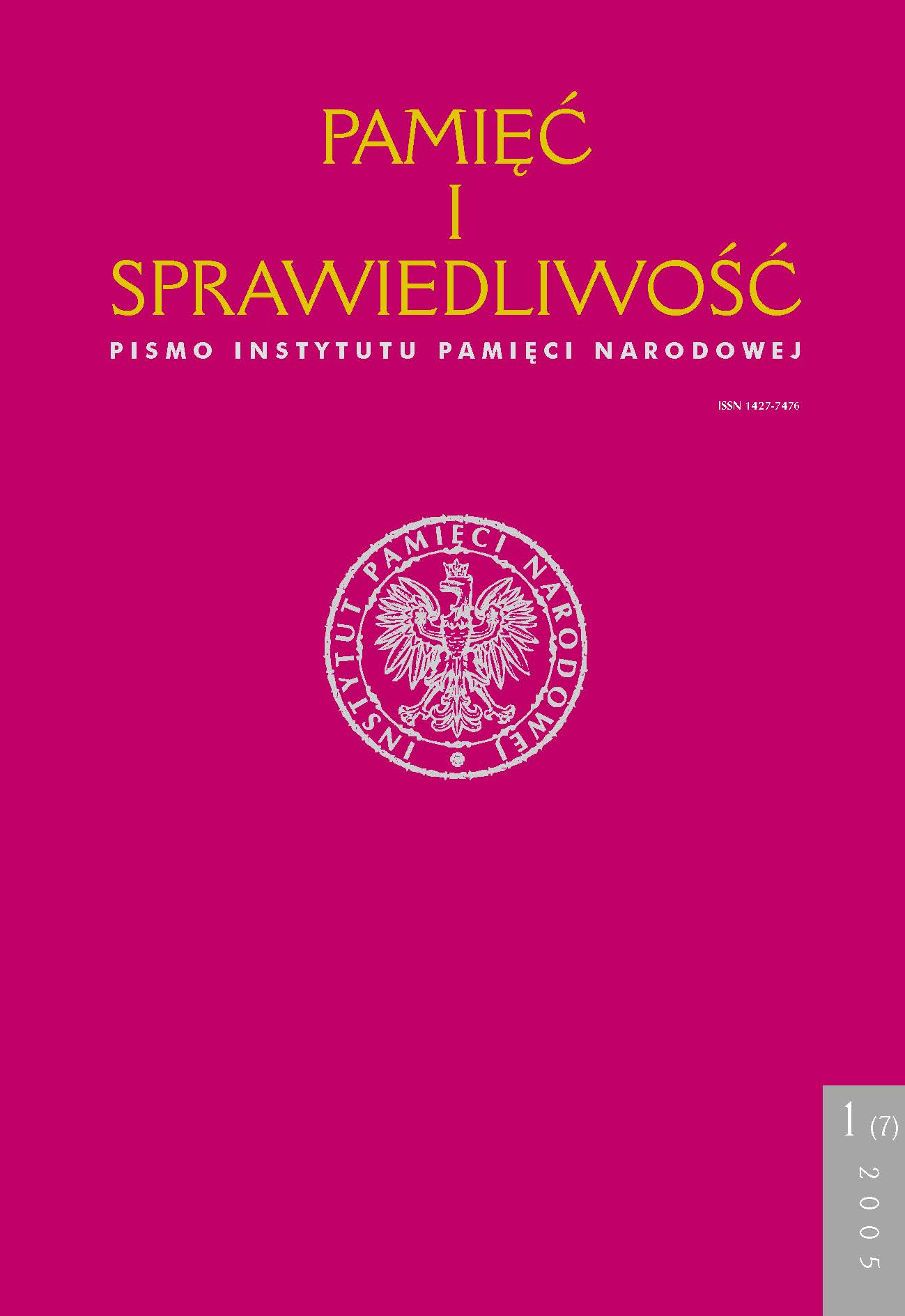Związek Patriotów Polskich w Szwecji (1943–1947)
Pamięć i Sprawiedliwość, Tom 7 Nr 1 (2005), strony: 253-270
Data publikacji: 2005-06-30
Abstrakt
The Union of Polish Patriots (ZPP) in Sweden assembled a group of Polish communists, who found themselves in Sweden during the Second World War. Its main activist was a seaman serving on a Polish merchant vessel, Jerzy Paƒski, who jumped ship in 1939. The organization’s work can be divided into three periods. As from mid 1943 at least, an informal group of Polish communists, supported by the Soviet legation in Stockholm, started spreading propaganda, which fought the Polish Government in Exile, amongst the Polish refugees. The Republic of Poland’s Legation trivialised it’s activities for a long time. The
creation of the Polish Committee for National Independence (PKWN) in July 1944 was the turning point. That is when the Union of Polish Patriots officially inaugurated its activities and gained the acceptance of Swedish authorities. It became the actual representative of the Polish Committee for National Independence, later the Temporary Government, although they only made contact with the “Lublin authorities” in October 1944.
The Union of Polish Patriots developed widespread organisational and propaganda initiatives. It published a simple news bulletin, organised meetings, registered refugees before
their expected repatriation and vainly tried to recruit them to Berling’s army. The aim was
to create a political centre which would compete with The Republic of Poland’s Legation, which represented the Polish Government in Exile and the local Polish community. It seemed that with the Swedish authorities’ passive attitude the Union of Polish Patriots might become an equipollent centre to the Legation. However, the communist propaganda did not gain many supporters and it seems that the Swedes, seeing the Soviet support for Jerzy Paƒski’s group treated it more seriously than the Poles themselves. The Union of Polish Patriots role in initiating Polish-Swedish industrial contacts was very small. However,
Pański deserves credit for convincing the Swedes to send humanitarian help to Poland in December 1944.
When the legation was taken over by the party from Warsaw in July 1945 and Pański soon departed to Poland, the Union of Polish Patriots started to search for a new formula as the basis of its activities. It tried to continue the pro-repatriation propaganda, but the Republic of Poland’s Legation started to get the upper hand. Additionally personal conflicts arose between members. Finally it was agreed that the organisation had fulfilled its
mission and was dissolved.
Inne teksty tego samego autora
- Sune Persson, Paweł Jaworski, [Recenzja] Sune Persson, „Vi aker till Sverige”. De vita bussarna 1945, Fischer & Co 2003, ss. 552, il., mapy , Pamięć i Sprawiedliwość: Tom 6 Nr 2 (2004)
- Paweł Jaworski, Janusz Wasylkowski, [Recenzja] Janusz Wasylkowski, Na rzecz wolnej Polski. Towarzystwo Polskie w Danii i jego poprzednicy 1973–2001, Instytut Lwowski na zlecenie Fundacji Towarzystwa Polskiego w Danii, Kopenhaga 2002, ss. XVI + 152, il. , Pamięć i Sprawiedliwość: Tom 5 Nr 1 (2004)
 Język Polski
Język Polski
 English
English
 Deutsch
Deutsch
 Français (France)
Français (France)
 Italiano
Italiano
 Русский
Русский


 PDF
PDF
